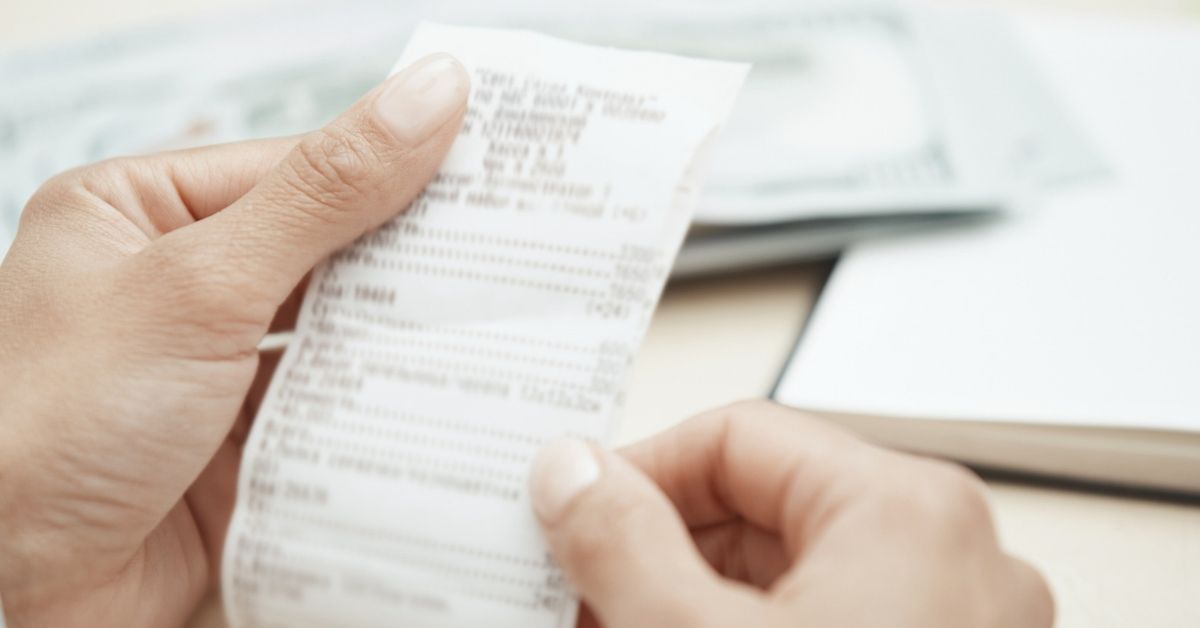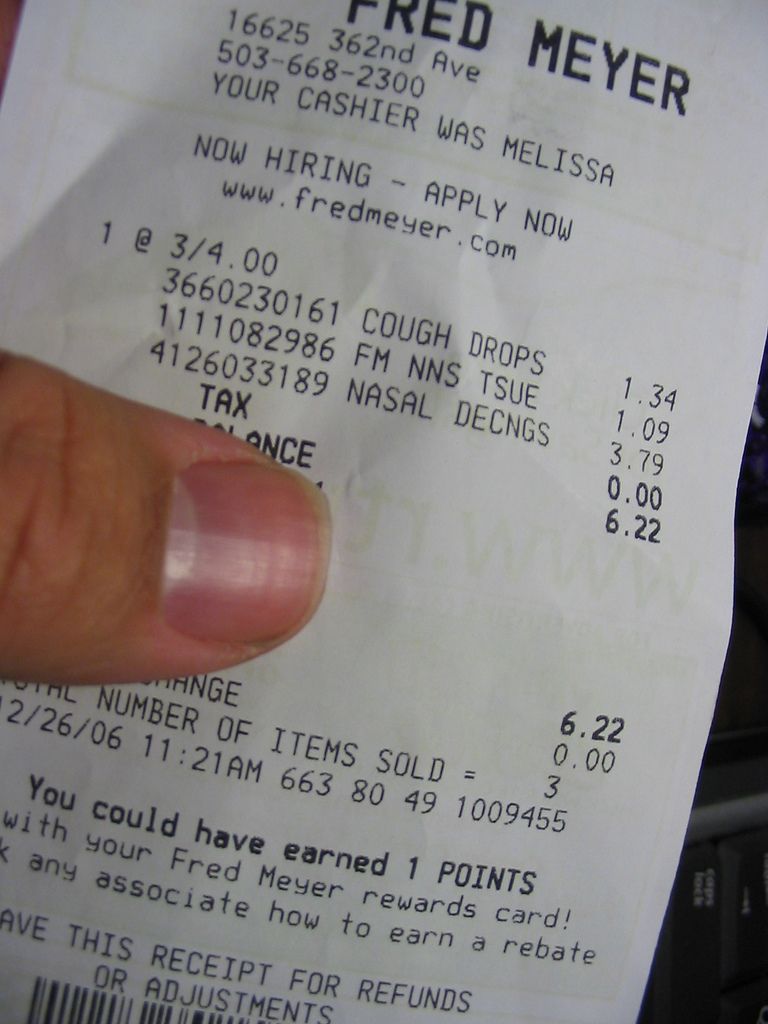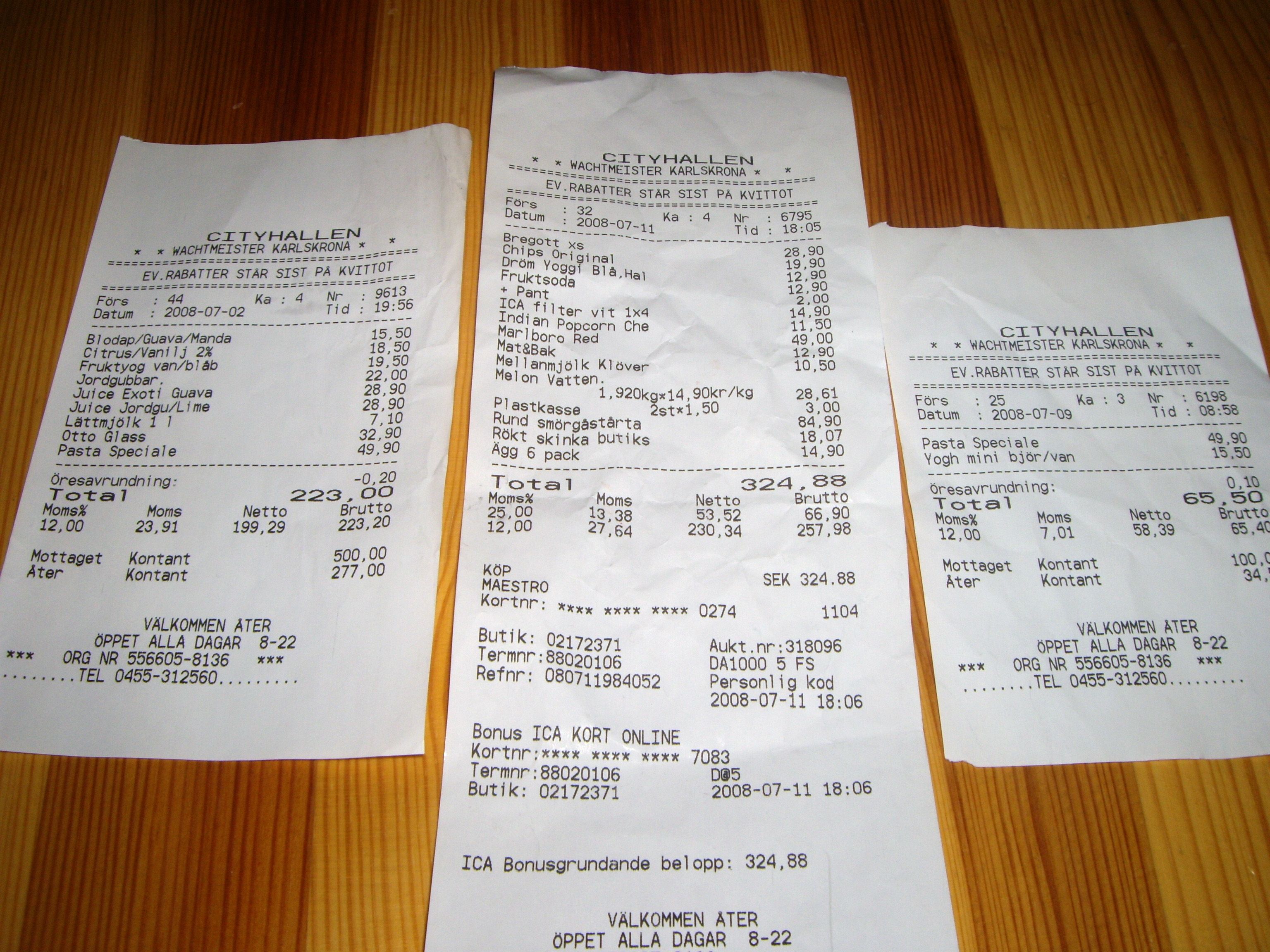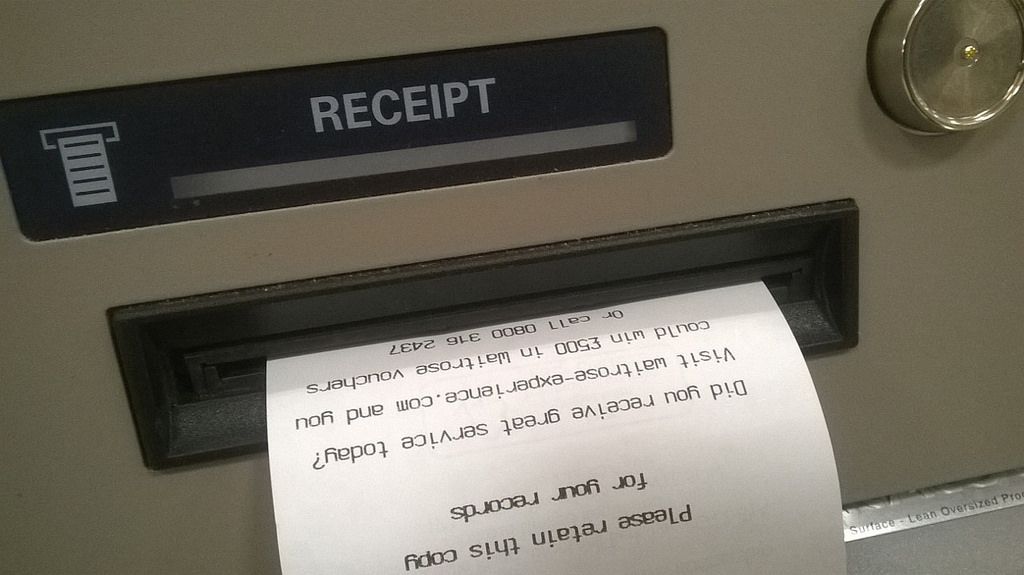In the last couple of years, retailers have been slowly moving away from handing out paper receipts. Many companies, including beauty giant Sephora, now offer customers the option to have their proof of transaction sent to them via email or even by text.
Not only does this initiative benefit the environment by reducing paper waste, it could be saving your life and you had no idea.
According to a recent study by Environmental Defence Canada (EDC), simply handling a paper receipt could expose a person to "worrying" levels of bisphenol A (BPA) and bisphenol S (BPS), industrial chemicals that have been linked to certain cancers and several other medical conditions.
The researchers, all of whom are environmentalists, voluntarily handled receipts printed on thermal paper before taking urine tests.
The results showed that their bodies contained BPA levels that were 42 times higher than normal and BPS levels that increased 115 times. The toxins were absorbed through the skin, which negates the popular belief that these chemicals are only harmful when ingested by mouth.
"As a consumer, this scares the bejeebers out of me," Rick Smith, co-author of Slow Death by Rubber Duck: How the Toxic Chemistry of Everyday Life Affects Our Health, told CTV News. "All of us have handled these things on a daily basis."
Smith also pointed out that there were higher levels of BPA in his blood and urine because he used hand sanitizer before touching the receipts.
This is especially concerning because many retail workers do regularly use sanitizers right before handling receipts.
The worry about the toxicity of receipts is anything but new. This recent experiment comes just a little over a year after scientists at Ann Arbor Ecology Center in Michigan published a study which revealed that about 93% of receipts contain both BPA and BPS.
At the time, researchers encouraged businesses to switch to safer paper or electronic receipts.
What's even scarier is that these harmful chemicals aren't just found in receipts. BPA is approved to be used in food packaging and canning and this has been the case since the 1960s, according to the U.S. Food and Drug Administration.
As a result, many of the foods we consume do contain traces of BPA, some more than others.
In addition to being linked to breast and prostate cancers, BPA has "endocrine disrupting properties" which affects fertility.
While the scientific community don't seem to be on the same page when it comes to determining if the current exposure levels are safe, plenty of studies have highlighted the health risks associated with the chemical, leading to the call to have BPA banned from all products.
In the U.S., the FDA no longer allows manufacturers to use the chemical in baby products, including bottles, sippy cups, and formula packaging.




